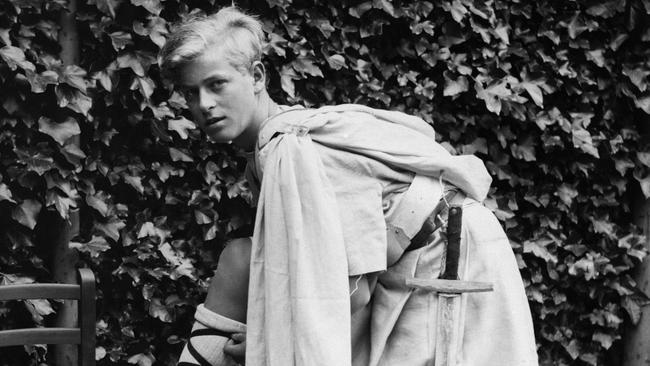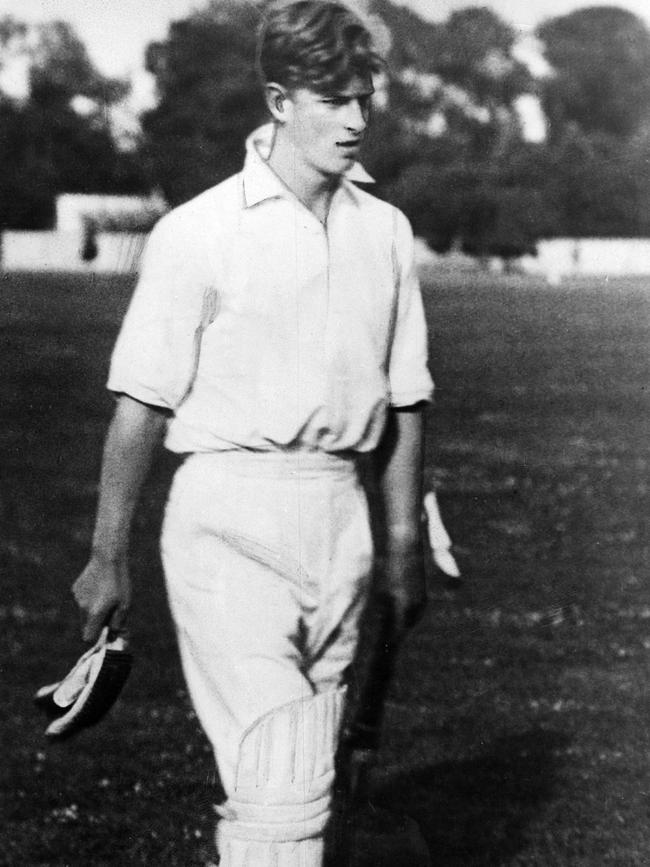Philip tired of ‘royalty nonsense’ at Gordonstoun school
His headmaster at Gordonstoun revealed his disregard for cultural sensitivities led to an early exit from Germany for laughing at the Nazi salute.

Raffish young buck, grouchy old curmudgeon — for much of his life, Prince Philip was destined to be caricatured or misunderstood.
If only we had asked his former headmaster, whose record of his school career in the 1930s has just been released.
It is so prescient that it reads as if written not at the beginning but at the end of his extraordinary life.
Philip became a pupil at Gordonstoun in Scotland at the age of 13 in 1934, with a regime that started with a bracing hike before breakfast and included two icy showers a day. He had in effect been abandoned by his parents — his father had left for Monaco with a mistress, and he heard nothing from his mother for five years, after she had a mental breakdown.
His sisters all married within a year of each other and moved away to Germany.
It was in these circumstances that Kurt Hahn, the German-Jewish founder of Gordonstoun in the Scottish Highlands, became the mentor of Philip, only the 10th pupil at the experimental school.
Hahn was asked to write a record of Philip’s school career a few weeks before his engagement to the future Queen, in 1947. It is this record, which covers the period 1934-39, when Philip left for the Royal Naval College at Dartmouth, that the school has released for the first time.
It was granted permission by the Palace in the expectation that he would live to celebrate his 100th birthday in June.
He was only a minor princeling as a youth, yet Hahn noted: “He had grown impatient of what for short may be called royalty nonsense. After matches and theatrical performances, people often asked him for an autograph. He found this ridiculous and on one occasion signed himself ‘The Earl of Baldwin’, to the bewilderment of the autograph-hunter.”
His disregard for cultural sensitivities as an adult led to innumerable gaffes, but as a boy in Germany, his instincts were spot on. Before he arrived at Gordonstoun, he was meant to have spent a year at Hahn’s original school in Salem, Germany, but was abruptly extricated by one of his sisters in the summer of 1934.

Hahn explains that it was for his own safety. “This was the reason for the suddenness of Philip’s transfer: whenever the Nazi salute was given, he roared with laughter. After he had been admonished to caution, he continued to be doubled up in uncontrollable mirth.
“He no longer roared, but nevertheless attracted universal attention. ‘We thought it better for him and also for us if he returned to England right away,’ said his sister, who brought him to Gordonstoun.”
Hahn had been the headmaster at Salem, but was first imprisoned and then banished by the Nazis.
An episode that the head felt had a “profound effect” on the development of Philip’s character was a twist in fate that led to the restoration of the king of Greece. Because Philip was in the line of succession, he was offered the chance to lead a privileged life in Greece.
“The lure of early and undeserved importance was definitely felt” but he resisted and opted instead to apply to the Royal Navy, declaring: ‘England is my home.’ ”
According to his headmaster, it was because of Philip’s grandmother, the Dowager Lady Milford Haven, that he chose the harder path.
“She transmitted — not by words — her creed to Philip that kingship was indeed a healing force in this sick world, but that it was important again and again for sons and grandsons of kings to prove themselves in a free trial of strength, shaking themselves clear from the enervating sense of privilege.
“Philip’s choice was a choice of destiny. It meant that he entered the battle of life determined to win it on his own merits.”
It is arguable that this moment also shaped the destiny of the next generation, for Philip resolved to send his three sons to the same school rather than the more obvious alternative of Eton.
School records show Philip became cricket and hockey captain, and was made school guardian, or head boy, in his final year. He built a pigsty and sailed to Norway, where he “proved himself a first-class lamp trimmer, not a bad preparation for the manipulation of searchlights, which turned out to be his job during the battle of Matapan”.
He was mentioned in dispatches for the victory against the Italian fleet in March 1941.
He found things easy, which could lead to displays of “intolerance and impatience”, Hahn said. “When he was in the middle-school, he got into a fair number of scrapes through recklessness and wildness. He was often naughty, never nasty.” He also showed “an ease and forthrightness in dealing with … all kinds.”
One of Philip’s most enduring legacies, the Duke of Edinburgh’s Award, was inspired by an award devised by Hahn to recognise voluntary work in the community. It, too, was met with resistance, with the Conservative minister for education Sir David Eccles telling him: “I hear you’re trying to invent something like the Hitler Youth.”
Philip was, however, vindicated: since then, more than three million young people have gained the award, and record-breaking numbers are now attempting it.
The Sunday Times



To join the conversation, please log in. Don't have an account? Register
Join the conversation, you are commenting as Logout